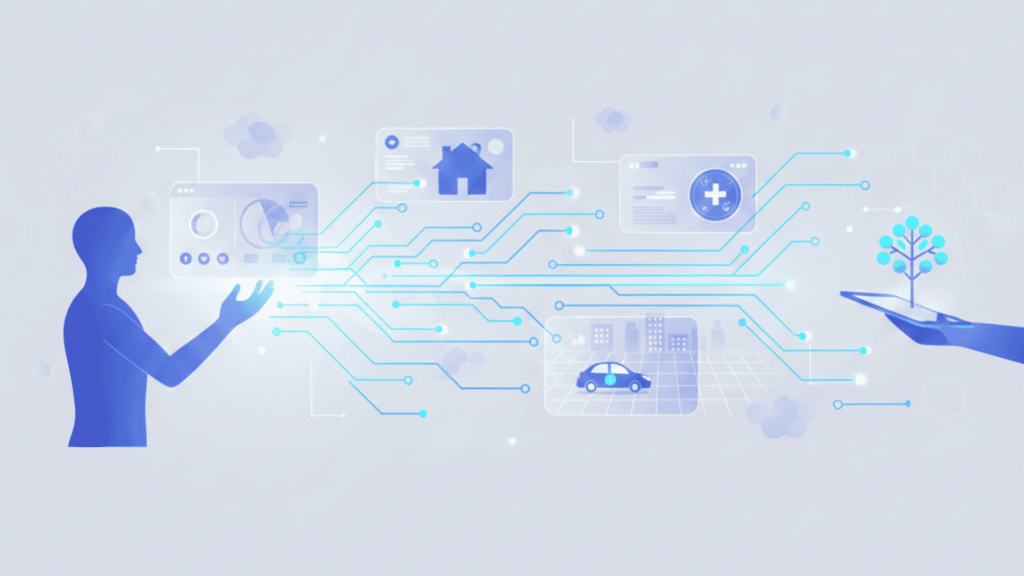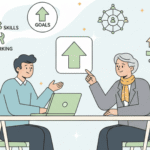The Future of AI is already here in small ways. You use it when your phone suggests a reply or when a map finds a faster route. It is not magic. It is code and data doing useful tasks. This piece explains where AI is headed and what it means for work, health, creativity, and everyday life.
💼 The Future of AI in work and jobs
AI will change many jobs. Some tasks will be automated. Others will need new skills. For example, routine data entry may disappear. People who can work with AI — designing prompts, checking results, and handling exceptions — will be in demand. Companies will hire fewer people for repetitive tasks and more for problem-solving and communication.
What you can do now:
- Learn basic data skills.
- Practice explaining problems clearly.
- Get comfortable checking AI outputs.
🩺 The Future of AI in healthcare
AI can help doctors find patterns in scans and records. It can speed up diagnoses and suggest treatments. But it is not a doctor. Human judgment matters. AI tools can miss rare cases or show bias from old data. Health workers will still need to confirm AI suggestions.
What matters most:
- Keep patient safety first.
- Use AI as a tool, not a decision-maker.
- Train clinicians to understand AI limits.
🧰 Smarter tools, not smarter people
AI makes tools smarter. It does not make people smarter. It speeds up tasks and offers options. That can free time for creative work. It can also make mistakes that look confident. So always check results. Trust, but verify.
🔒 Privacy and trust
AI needs data. That raises privacy questions. Who owns the data? How is it used? Small companies and big ones face the same issues. Rules and clear policies will help. Users should have control over their data. Transparency matters more than fancy promises.
🎨 Creativity and everyday life
AI helps make music, write drafts, and suggest designs. It can spark ideas fast. But originality still comes from people. AI gives options; people choose the direction. Use it to test ideas, not to replace your voice.
Practical tips:
- Use AI to draft, then edit by hand.
- Keep a clear goal before you start.
- Treat AI suggestions as raw material.
🎓 Education and learning
Schools will change. AI can offer personalized practice and quick feedback. That helps students who fall behind. But good teaching remains essential. Teachers must learn to use AI tools well. Learning how to think and ask good questions will be more valuable than memorizing facts.
⚖️ Rules, jobs, and fairness
New rules are coming. Governments and organizations will set standards on safety and fairness. Jobs will shift, not vanish overnight. Social programs and training can help workers move to new roles. The choices we make now will shape how fair the shift is.
✔️ Simple steps for individuals
If you want to prepare:
- Build digital skills.
- Keep learning regularly.
- Focus on communication and critical thinking.
- Learn how to evaluate AI outputs.
🧭 Final thoughts
The Future of AI will bring change. Some of it will be helpful. Some of it will be messy. The technology will not solve every problem. People will still decide what matters. If we focus on practical steps — skills, rules, and safety — we can use AI to do useful work while avoiding major harms. The Future of AI is not a date. It is choices we make today.


